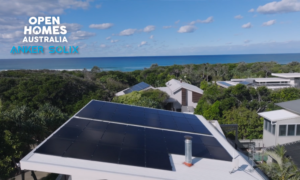A 1.8 megawatt (MW) solar farm is being installed at the Parliament House building in Pakistan’s capital city Islamabad.
According to Trust.org, the USD $60 million project has been funded by the Chinese government; which also recently assisted in the preparation of a solar park project on over 10,000 acres that could ultimately host 1,000 MW of solar panel capacity.
The Parliament House project will not only save Pakistan’s government around a million dollars a year in electricity costs, it’s hoped the high profile array will also spur on broader adoption.
It was only in May 2012 that Pakistan unveiled the first grid connected solar power system – also in Islamabad.
Solar is well suited to the nation as it is bathed in sunshine most days and has an average insolation of 5.3 kWh/m²/day. The nation has a confirmed wind energy potential of more than 346,000 MW and solar power potential of over 2.9 million MW.
44 percent of households in Pakistan are not connected to the grid and for those that are; blackouts are common.
Like most countries, Pakistan has a heavy reliance on fossil fuels for power generation; the majority of which are imported. The country also has nuclear-based generation, but that is a bit-player; contributing only 2%.
Household uptake of solar panels still faces a major barrier – a 32 percent import duty on solar panels, 10 percent on batteries and 15 percent on solar lanterns. As yet the government has no solid plan in place to encourage home solar adoption.
Pakistan has set a target to add approximately 10,000 MW renewable energy capacity by 2030.
More than 300 MW of PV capacity is expected to be installed in Pakistan this year; most of that associated with an initiative between the government and German company AEG.














































